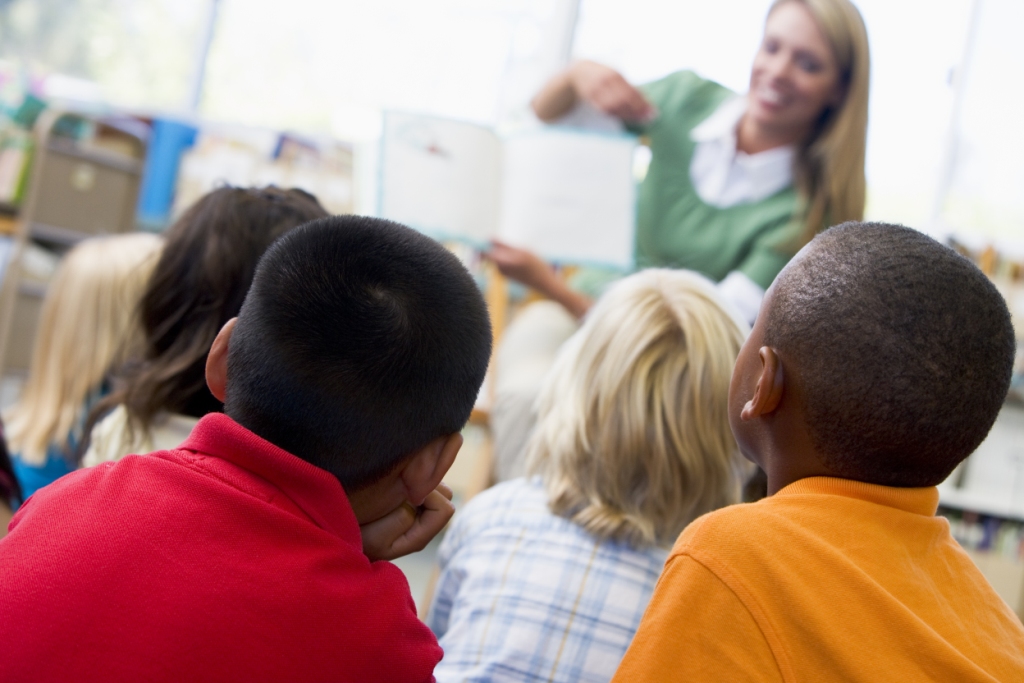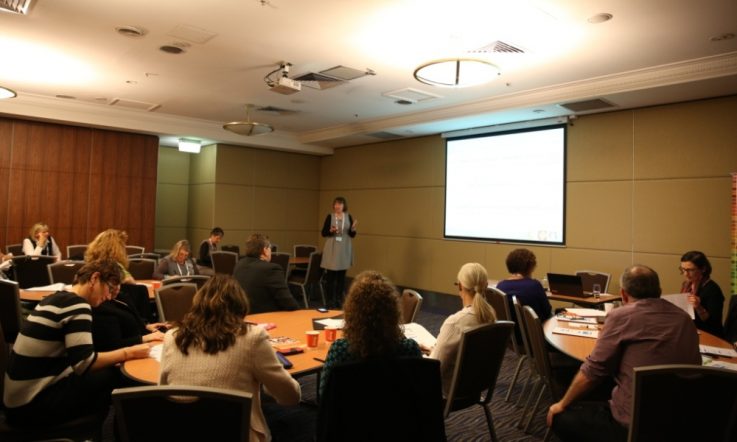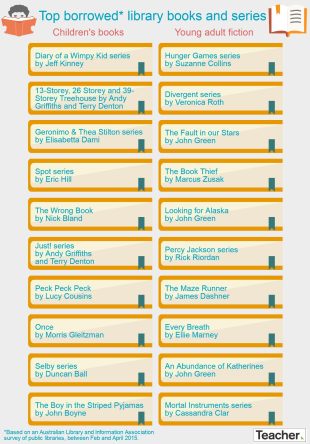It doesn't matter what age you are, there's nothing quite like losing yourself in a good book.
But, did you know that reading for enjoyment is also associated with higher academic achievement?
A recent large scale study concluded reading for pleasure has ‘a powerful influence on children's learning', particularly in developing vocabulary, but also on spelling and maths skills.
‘Reading for pleasure made a substantial difference [on intellectual progress] – the difference made was around four times greater than the difference made by having a parent with a degree' (Sullivan, 2014).
Analysis of PISA results has shown a ‘crucial difference' between youngsters who perform well in the reading assessment and those who perform poorly is not how much time they spend reading, but whether they read daily for enjoyment.
‘On average, students who read daily for enjoyment score the equivalent of one-and-a-half years of schooling better than those who do not,' (OECD, 2011).
Yet, in most countries, enjoyment of reading among school students is on a downward trend.
According to Australian Council of Educational Research (ACER) analysis of PIRLS (Progress in International Reading Literacy Study) data, 45 per cent of Year 4 students in Australia say they only read if they have to.
So, how can educators and parents encourage youngsters to read for fun in school and at home?
A survey of more than 2500 parents and children, conducted across the US at the end of 2014 by Scholastic, provides some interesting insights.
The Kids & Family Reading Report 5th Edition explored attitudes and behaviours around reading books for pleasure.
The research found 51 per cent of children (aged six to 17) were currently reading a book for fun and 20 per cent had just finished one.
The survey found that school plays a particularly important part in reading for pleasure for students from lower socioeconomic backgrounds. ‘Sixty-one percent of children ages 6–17 from the lowest-income homes say they read for fun mostly in school or equally at school and at home, while 32 per cent of kids ages 6–17 from the highest-income homes say the same.'
One third of children aged six to 17 said there was a designated time during the school day to read a book they had chosen independently (not textbooks), but only 17 per cent do it every or almost every school day. When asked to describe when they read a book of their choice independently at school (in class, in free time, or as a school), 30 per cent of six- to eight-year-olds said ‘I don't do this at all' – and that figure increased to 61 per cent among 15- to 17-year-olds.
So, simply making time available during day for free reading (including in high school) will help.
An even stronger message to come from the survey is that, when it comes to picking out books students want to read for fun, they want to do the choosing.

Image © Shutterstock/wavebreakmedia
As an adult, you probably like getting recommendations from friends and colleagues on what to read, but if every time you went to the library one of the staff picked out your books, it's a fair bet you may start to lose interest.
When you think of it like that, it's not hard to see why 91 per cent of children in the Scholastic survey said their favourite books were the ones that they'd picked out for themselves, and 90 per cent said they were more likely to finish reading a book that they had chosen independently.
The OECD data showing downward trends in reading for enjoyment relates to 15-year-olds. The Scholastic survey suggests, in the US at least, things start off well enough in lower primary: 62 per cent of six- to eight-year-olds said they love reading books for fun or like it a lot.
However, the percentages decrease as children get older – to 49 per cent in the 12 to 14 age group and just 46 per cent among nine- to 11-year-olds and 15- to 17-year-olds.
Australian academic Margaret Merga has explored the role of teachers in encouraging recreational reading beyond the primary years.
From a study of Year 8 and Year 10 students in 20 Western Australian schools, she outlines six key nourishing practices and qualities of teachers who encourage recreational reading:
- Personal enjoyment of reading is clearly apparent;
- A willingness to instigate and support student centred discussion around books;
- A broad knowledge of both young adult texts and youth popular culture;
- Effectively communicated expectations that students will read at school and at home;
- A knowledge of the interests and aspirations of the students; and
- The use of in-class practices that encourage reading for pleasure, such as reading aloud to students and silent reading. (Merga, 2015)
The practice of reading aloud is an interesting one to ponder. As an adult, when was the last time someone read aloud to you? Did you enjoy it? Was it because you didn't have the necessary skills to read the book yourself?
In Merga's study, none of the students recalled high school teachers reading aloud to them. If it happens in your high school class it's likely to be in the context of teacher modelling or to highlight an important part of a text in relation to a learning goal, rather than for pure enjoyment.

Image © Shutterstock/Monkey Business Images
The Scholastic study looks at this issue in a home context, but the findings could offer some useful pointers for educators in schools.
‘More than half of children aged 0-5 (54 per cent) are read aloud to at home five to seven days a week. This declines to only one in three kids ages 6-8 (34 per cent) and one in six kids ages 9–11 (17 per cent). When it comes to being read aloud to at home … [83 per cent of children across the age groups] say they love/d or like/d it a lot.'
The survey found 91 per cent of parents started reading books aloud at home before their child turned six. Of those, 80 per cent said they did it because they wanted their child to enjoy books.
Twenty-three per cent of parents said they stopped reading books aloud to their children before the age of nine, the reasons being: ‘My child was old enough to read on his/her own' (75 per cent); ‘My child wanted to read independently' (58 per cent); and ‘I wanted to promote independent reading' (49 per cent).
Looking at things from the child's perspective offers a different story. Four out of 10 children aged six to 11 didn't want their parents to stop reading aloud to them. The main reason was because it's special time with their parent (78 per cent), but 65 per cent also said reading together was fun, 48 per cent said they got to listen to books that might have been too hard for them, 36 per cent said they simply liked the fact they didn't have to do the reading by themselves, and 35 per cent said they liked to hear the different voices or talk about the books with the person doing the reading.
So, if you want to foster a love of reading among your students then setting aside some time to read aloud (just for the fun of it) could be a good place to start.
References
OECD (2011). 'Do Students Today Read for Pleasure?', PISA in Focus, No. 8. OECD Publishing, Paris.
Merga, M.K. (2015). '"She knows what I like": Student-generated best-practice statements for encouraging recreational book reading in adolescents.' Australian Journal of Education. (To appear in Vol. 59 issue 1).
Scholastic (2015). Kids & Family Reading Report: 5th Edition. New York: NY.
Sullivan, A. (2014). Reading for pleasure, and attainment in maths, vocabulary and spelling [IOE Research Briefing N°106]. Institute of Education, University of London, London.
Stay tuned: Our next Teacher infographic will take a look at what children want from the books they read for pleasure.
Do you set aside time each day for students to do free reading?
How often do you allow students to select their own books?
As a teacher, do you still read aloud to students - purely for enjoyment? If not, why not?
National Simultaneous Storytime, held annually by the Australian Library and Information Association, is on May 27. Visit https://www.alia.org.au/nss for more information.
Related Teacher content: Reading for fun



